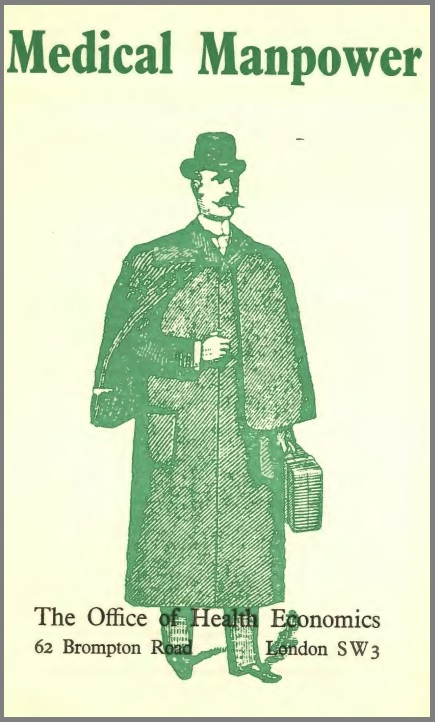In 1964 there were estimated to be 55,000 doctors actively engaged in medicine in England and Wales. In addition to these probably some 8000 to 9000…
In 1964 there were estimated to be 55,000 doctors actively engaged in medicine in England and Wales. In addition to these probably some 8000 to 9000 qualified doctors were not practising of whom about half had retired on grounds of ill-health or age.…
In 1964 there were estimated to be 55,000 doctors actively engaged in medicine in England and Wales. In addition to these probably some 8000 to 9000 qualified doctors were not practising of whom about half had retired on grounds of ill-health or age. The two largest groups of those professionally employed were the 22,000 general practitioners and the 21,000 hospital doctors.
During the eighteenth and the early part of the nineteenth century medical care was provided by barber surgeons, physicians, apothecaries and not a few quacks. Although medicine had been one of the superior faculties in the universities since the Middle Ages, many medical practitioners had no university education and only the training they had acquired through apprenticeships or experience. In these circumstances, there were both sincere practitioners with sound—if scientifically limited—academic qualifications, and unqualified and often unscrupulous charlatans. Some of the latter used ‘imposing, if medically meaningless’, strings of letters after their names. One, who had ‘scorned to purchase a medical diploma from the colleges marketing such things’, was alleged to have been earning £13,000 a year, a rare fortune for the 1820s. Thus, even though the medical professions were consolidated and their practice controlled by the formation of the General Medical Council in 1858, doctors in the mid-nineteenth century had a heterogeneous background.
As scientific and medical knowledge developed during the remainder of the nineteenth and the twentieth centuries, the scope of medical practice was extended and changed. It has been said that it was not until 1912 that ‘the random patient, with a random disease, consulting a random physician, had a better than fifty-fifty chance of benefiting from the encounter’. Medical progress since then, and especially in the last two decades, has been more rapid than ever before, and therefore the change in the role of the doctor has been correspondingly dramatic.
Thus a historical review of the numbers of doctors in Britain is complicated not only by the fact that some registered medical responsibilities and function of those who do practise. The practitioners do not practice medicine, but also by the changing responsibilities and functions of those who do practice.
